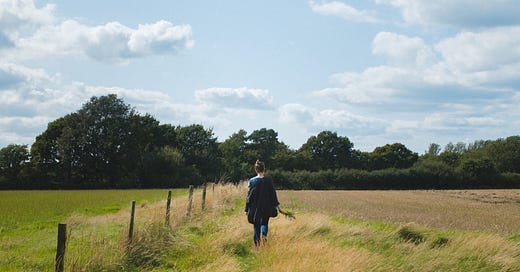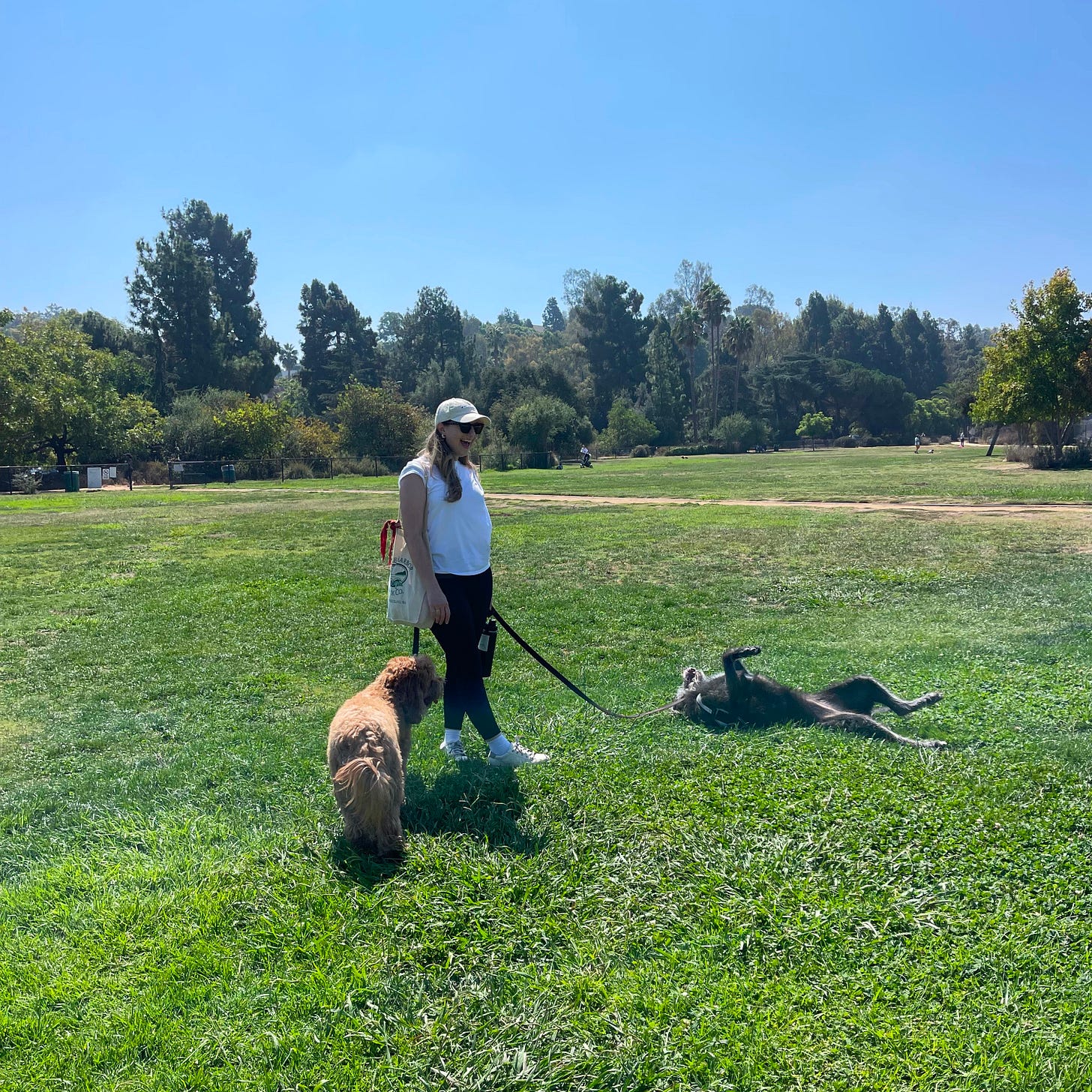Puberty 2.0: Getting My Hormones Back After Breast Cancer
Almost six years on from being diagnosed with breast cancer at 29, I'm finally getting my hormones back.
Welcome to Am I Cured Yet? I’m so happy you’re here. My sincere thanks for hanging out in my little corner of the internet.
Today, I’m writing about completing five years of hormone suppression treatment for breast cancer. This post is part of my series on ‘regrowth.’
Back in June, I took my final hormone suppression pill.
I’d been on a combination of these tablets and monthly injections for five years, the medications working in tandem to stop my body from producing estrogen, hopefully preventing my aggressive breast cancer from returning or, worse, metastasising.
In effect, I’d been kept in a sort of ‘super’ menopause since the age of twenty-nine, the goal being to keep my estrogen levels at zero, lower even than those of a cisgender man.
Before I began this course of treatment, I was terrified at the thought of losing my hormones, viewing it as a sort of personality change or chemical castration. Estrogen is responsible for so many things in the female body, “regulating the menstrual cycle [and affecting] the reproductive tract, the urinary tract, the heart and blood vessels, bones, breasts, skin, hair, mucous membranes, pelvic muscles, and the brain.”
The physical experience of losing all my estrogen was intense and, in some ways, my fears turned out to be correct. I dealt with all the side effects you hear about with regular menopause; only my body was going through this change early, suddenly and far quicker than it was supposed to. One day, I was a ‘normal’ 29-year-old; the next day, I was dealing with hot flashes, memory problems and an apparent inability to achieve a good night’s sleep.
After the initial side effects settled down, I noticed I was no longer in touch with my emotions in the same way. Who’s to say if the hormone suppression caused this? I was on an antidepressant, too, and with my cancer treatment and the death of my best friend to the same disease, I was still processing a lot of trauma. Whatever the cause, I found myself a little more stoic.
I began to question who I was without my hormones. I lacked aspects of my personality that I previously thought were integral to my identity. My word recall became poor in conversation, and my emotional openness shifted. I was less likely to cry when overwhelmed or when watching my favourite romantic movies. Sometimes, I wondered if my behaviour wasn’t bordering on robotic.
Do all women have a similar experience when their estrogen plummets? Where do our hormones end and our personalities begin? Menopause has, historically, been such a taboo subject I felt woefully unequipped to go through it. And, if I’m honest, I was often too embarrassed to talk about the difficulties I was having. I’ve been heartened to see that, slowly, the conversation around menopause has been moving out of the shadows and into the light. Here’s a great post from Sam Baker describing exactly that:
In the months since I stopped treatment, I’ve been experiencing the gradual return of my hormones. It’s a slow process, my body attempting to wake up after years of being entirely without estrogen. I’m noticing some subtle changes: my skin’s no longer as dry, I’m back to washing my hair every other day, and I’ve had a few cramps—hopefully, signs my period might return soon. Having also come off antidepressants, I’ve found myself feeling more emotional, and not necessarily in an unpleasant way. It’s as if my emotions are more accessible, always waiting just beneath the surface. Maybe I even shed a tear at the end of Nobody Wants This.
Recently, I was discussing these hormonal changes with a friend and fellow breast cancer survivor.
“It’s like you’re going through puberty again!” She said.
I’d never thought of it this way, and her insight floored me.
It’s exactly like going through puberty again—the uncertainty about what’s happening to my body, feeling different in my skin every other day, and my emotions ebbing and flowing.
It’s a wild thing to be experiencing at 35.
Regardless, puberty 2.0 is going well so far. I’ve been getting weekly acupuncture to try and hasten the return of my cycle. And I’m so happy to finally be at this turning point after more than five years of waiting.
I’ve written before about how, when times get hard, I think about the seasons of the year, imagining the different phases reflected in all life’s ups and downs. This seems like a perfect representation.
After so many years of winter, my body is finally waking up, and it feels just like Spring.
If this is the first time you’ve come across my page, I’d be honoured if you considered subscribing. You can expect always thoughtful, occasionally funny, weekly essays about health, happiness and mortality.
I’ll be back next week. In the meantime, thanks for reading! Take care of yourself :)
Emma
xx








I have been in letrozole before due to my pcos and estrogen dominance. Women have such a complicated symphony of hormones where men’s are just a boring 24 hour rise and fall. Glad you are finding support in acupuncture!!! I just came from a session it felt great 🧘🏼♀️
You are right. I went into menopause knowing nothing and having never been told what to expect. I am still trying to work it all out. And yes, the side effects suck. Multiply that by 1000 when you are in your early 30s, it’s not the natural course of your life, is accelerated and you have zero oestrogen. I can’t even imagine it. Thank you for getting over the embarrassment and using your voice to speak this out loud. This is an important post and I am certain many other young women will be grateful for it.